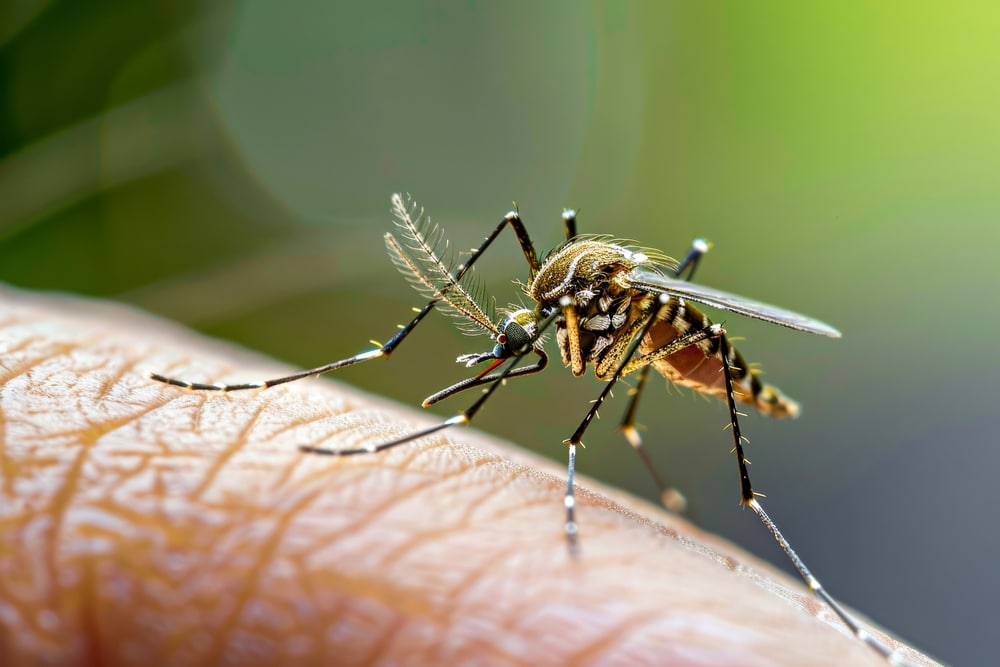Researchers at the Bill Gates Foundation-backed Leiden University Medical Center in the Netherlands have joined an international effort to transform mosquitoes into flying syringes.
According to a study published late last month in the New England Journal of Medicine, they apparently now have an effective way of using mosquitoes to deliver some protection against malaria in unsuspecting humans — and possibly other payloads in the future as well.
Scientists have long toyed with the idea of transforming mosquitoes into “flying vaccinator[s].”
Shigeto Yoshida, the lead researcher on a 2010 study that modified mosquitoes’ saliva such that they would deliver leishmania vaccines to mice when sucking their blood, noted that vaccination by insect was “just like a conventional vaccination but with no pain and no cost.”
“What’s more, continuous exposure to bites will maintain high levels of protective immunity, through natural boosting, for a lifetime. So the insect shifts from being a pest to being beneficial,” added Yoshida.
Despite the Japanese geneticist’s optimism, his study acknowledged that “medical safety issues and concerns about informed consent mitigate the use of the ‘flying vaccinator’ as a method to deliver vaccines.”
Robert Sinden, professor emeritus of parasite cell biology at Imperial College London, told Science at the time that in addition to vaccinating people without their informed consent, no regulatory agency would sign off on the initiative.
The issue of informed consent, apparently an ongoing issue for elements of the scientific community, was evidently not enough to hinder the continued development of flying vaccinators.
Hiroyuki Matsuoka of Jichi Medical University in Japan, for instance, announced that with the help of a 2008 Gates Foundation grant, he was preparing work on an engineered mosquito that could produce and secrete a malaria vaccine protein into a host’s skin.
In 2022, Sean Murphy and his team at the University of Washington demonstrated the workability of that idea, testing mosquito-borne malaria vaccines on humans, establishing what they called a “proof of concept” for the technology.
Concerned about the short-lived and marginally effective nature of the malaria vaccines currently approved by the World Health Organization, Dutch researchers at the LUMC similarly turned to genetically modified parasites and mosquito carriers as a potential alternative.
In an earlier trial, the researchers tested the effectiveness of GA1, a malaria parasite genetically modified to stop developing after roughly 24 hours of infection in humans, but found that it only provided low protective efficacy against malaria.
Hoping for a better outcome, the researchers crafted another parasite, GA2, to stop developing around six days following invasion in preclinical humanized mouse models.
The Bill Gates-backed Gavi, also known as the Vaccine Alliance, noted that “because the parasite dies before it infects the blood cells and evolves into its deadly phase, it instead acts as a way of priming the immune system, as a vaccination usually would.”
Afforded a test group of 43 adults between the ages of 19 and 35 who previously had no record of malaria infection, the researchers subjected subjects to 50 bites from GA2-infected mosquitoes, 50 bites from GA1-infected mosquitoes, or 50 bites from uninfected mosquitoes (placebo), in three vaccination sessions at 28-day intervals.
Three weeks following their third devouring by mosquitoes, the human test subjects underwent malaria infection with five bites from infected mosquitoes.










